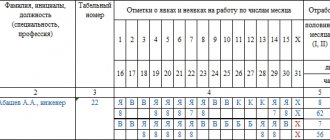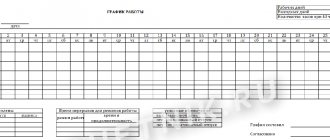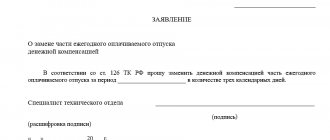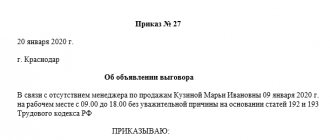Labor legislation establishes the standard working time - 40 hours per week. In my opinion, limiting working time and establishing its norm is a key achievement of civilization. Just remember how many upheavals, riots, and revolutions occurred precisely because of excess working hours!
What is the essence of working time? According to Art. 91 of the Labor Code of the Russian Federation, working time is the time during which an employee, in accordance with the internal labor regulations and the terms of the employment contract, must perform labor duties. ILO conventions describe this time to workers more categorically: this is the time during which the worker is at the disposal of the employer.
But doesn’t the current situation with working hours remind you of the plot of science fiction novels? When deviations from the norm were at first rare occurrences, then more frequent, and then it was difficult to meet the norm, because deviation from it sooner became the norm. So it is here. Non-standard working hours, non-standard ways of providing rest, unusual forms of employment, etc. are increasingly being used. Let's answer some common questions regarding non-standard working hours.
In what cases does the law provide for a working day of less than 8 hours?
Art. Art. 92, 93 of the Labor Code of the Russian Federation provide for cases when an employee’s working time may be less than 8 hours.
First of all, this is when an employee may be required by law to have reduced working hours. Moreover, sometimes in this case the workers’ salary remains full, despite the reduced working hours (disabled people, “harmful workers”), and sometimes the salary is reduced in proportion to the time worked (minors).
Also, at his request, an employee can be assigned part-time working hours, and sometimes such a wish of the employee is mandatory for the employer (for example, in relation to pregnant women). The only possibility of establishing part-time work at the initiative of the employer is by virtue of Article 74 of the Labor Code of the Russian Federation in the event of the threat of mass layoffs. Salary for part-time work is always set in proportion to the time worked.
Working hours standards
The work schedule (five or six days) affects the established work norm.
With a five day week
With five working days, the quarterly norms and number of days are as follows:
| 2020 | Amount of days | Length of labor time (hours) | ||||
| Calendar | Workers | Weekends and holidays | 40 hours/week | 36 hours/week | 24 hours/week | |
| I quarter | 90 | 57 | 33 | 454 | 408.4 | 271.6 |
| II quarter | 91 | 59 | 32 | 469 | 421.8 | 280.2 |
| III quarter | 92 | 66 | 26 | 528 | 475.2 | 316.8 |
| IV quarter | 92 | 65 | 27 | 519 | 467 | 311 |
| YEAR | 365 | 247 | 118 | 1970 | 1772,4 | 1179,6 |
In 2021, during the five-day period, there are the following long periods of rest:
- from 12/30/2018 to 01/08/2019 inclusive (New Year holidays);
- from 08.03 to 10.03 (International Women's Day);
- from 01.05 to 05.05 (Spring and Labor Holiday);
- from 09.05 to 12.05 (Victory Day)
- from 02.11 to 04.11 (National Unity Day).
With a six day week
With six working days, the quarterly norms and number of days are as follows:
| 2020 | Amount of days | Length of labor time (hours) | ||||
| Calendar | Workers | Weekends and holidays | 40 hours/week | 36 hours/week | 24 hours/week | |
| I quarter | 90 | 68 | 22 | 454 | 408,4 | 271,6 |
| II quarter | 91 | 74 | 17 | 469 | 421,8 | 280,2 |
| III quarter | 92 | 79 | 13 | 528 | 475,2 | 316,8 |
| IV quarter | 92 | 78 | 14 | 519 | 467 | 311 |
| YEAR | 365 | 299 | 66 | 1970 | 1772,4 | 1179,6 |
In what cases is it permissible to engage an employee to work outside of working hours?
As a general rule, working outside working hours is prohibited. But the law also provides for cases when this is possible - this is overtime work and irregular working hours (Articles 99, 101 of the Labor Code of the Russian Federation). The first option is more common in work groups, the second - for office employees.
Despite the same essence - work outside normal working hours at the initiative of the employer - these two options differ in design and compensation. If an irregular working day, with the consent of the parties to the employment contract, is formalized in the employment contract and subsequently does not require the employee’s consent for each engagement, then the employee’s consent is requested each time for overtime work (except for force majeure circumstances specified in the law).
Irregular working hours are compensated by additional leave (at least 3 days), and overtime work is compensated by additional pay or, at the request of the employee, additional rest time.
Temporary standards enshrined in the Labor Code
The legislation regulates several time periods related to working time, for which certain standards are established.
- Work shift or day – daily work activity. The law does not clearly define its duration. It is allowed to divide it into parts. Limits have been set to limit this period:
- 2.5 hours – for schoolchildren or students under 16 years of age, studying and working at the same time;
- 3.5 hours – for the same category from 16 to 18 years old;
- 5 hours – for young workers under 16 years of age;
- 7 hours – until employees’ 18th birthday;
- 6 hours – for employees of hazardous industries with a week lasting 30 hours;
- 8 hours - for them, if the week is 36 hours;
- as indicated in the medical report - for disabled people.
- Work week - the most commonly accepted interval used for calculations. The basis is the duration of work from Monday to Sunday (with one or two days off). Art. 91 sets "normal" work week, which is 40 hours. Other weekly norms are also regulated:
- incomplete week - introduced by agreement between the parties, when payment is calculated in proportion to hours worked; such a schedule can be established for certain categories of employees (pregnant women, caring for children or disabled people, parents of children under 14 years old);
- shortened week - provided for by the Labor Code regulations and internal documentation, when the normal duration is reduced due to the specifics of the working population (minus 4 hours or more per week for workers in hazardous industries, as well as young workers under 18 years of age; up to minus 5 hours - for disabled people; minus 16 hours – for the first job of 14-16 year old employees).
- Accounting period – a time period chosen to take into account the number of working hours worked and correlate them with standards. This is a certain form of control, reflecting the measure of this category. In the accounting period, shortfalls or overtime are identified according to working hours. This gap is fixed in the company’s regulatory documents and can be:
- month;
- quarter;
- any other period not exceeding a year.
- Occupancy limit – the limit above which the employer does not have the right to work an employee. Sometimes employees themselves express their desire (consent) to work beyond established standards (overtime) for appropriate pay. But the law does not allow this to be abused, for which the following limit standards are established:
- with a working day of 8 hours, overtime cannot exceed 4 hours;
- when working part-time, you cannot be employed for more than half the working day (except for days free at your main place);
- in any accounting period, it is prohibited to recycle more than 50% of the norm.
What are the features of working according to a schedule?
Unlike the usual organization of work 5 days a week at specific hours established in the company’s local regulations, the company may provide for work in shifts or on a schedule.
For both of these modes, the employer develops a schedule, but in the first case, workers replace each other within one day (2-3 shifts), and in the other case, workers work on different days according to the schedule.
The legislation provides for the following requirements for drawing up schedules (Article 103 of the Labor Code of the Russian Federation):
- the duration between shifts must be at least twice the duration of the shift;
- duration of weekly rest - at least 42 hours;
- It is necessary to familiarize employees with the schedule at least 1 month before its introduction;
- changing the schedule for a period of time of less than 1 month is possible only with the consent of the employee;
- Working two shifts is not allowed.
How to calculate the norm for summarized accounting
Cumulative accounting is a labor regime of a special nature, which is based on established schedules.
The payment option for work is determined by the employer. It can be:
- hourly rate (calculated based on the number of hours worked in a particular month);
- official salary (fixed amounts paid every month).
When installing summarized accounting, you should select the optimal accounting period: month, quarter or year. In this situation, the employer chooses. A period exceeding one year is not provided.
When introducing summarized accounting, the following must be observed:
- The regime is being implemented in those institutions where it is not possible to establish compliance with working hours on an ongoing basis.
- The amount of work time for a specified period cannot exceed the standards provided for by law.
- Compliance with the schedule is mandatory.
- The duration of overtime work is calculated at the end of the accounting period.
How legal is it if an employee works on Saturday and Sunday and rests on other days of the week?
As a general rule, weekends are Saturday and Sunday, but variations are possible. For example, on other days, while Sunday remains a general day off, it is desirable that the days off be consecutive. But if it is not possible to set the weekend in this way, then you can use the weekend on a sliding schedule (for example, this week Monday-Tuesday, and the next Wednesday-Thursday) depending on the needs of production (Article 111 of the Labor Code of the Russian Federation). Such features should be recorded not only in the employer’s local regulations, but also in the employee’s employment contract
Another option is possible - working on Saturday and Sunday (with these days being days off for the employee). As you know, engaging an employee to work on a day off (non-working holiday) is possible only with the consent of the employee, except in cases of force majeure provided for by law. In this case, the employer is obliged to provide the employee with compensation: payment for work on a day off in double the amount or, at the request of the employee, provision of a day of rest (Article 113.153 of the Labor Code of the Russian Federation).
Results
The length of the working week is established by labor, collective agreements or other regulations. The maximum duration cannot exceed 40 hours.
A shortened working week is provided for by law for certain categories of workers (teenagers, nursing mothers, teachers, doctors, etc.).
You can find more complete information on the topic in ConsultantPlus. Free trial access to the system for 2 days.
What are the possible options for providing a lunch break?
As you know, lunch is provided lasting from 30 minutes to 2 hours, every 4 hours of work (Article 108 of the Labor Code of the Russian Federation). However, there are not many employers who set specific lunch hours (for example, from 13 to 14 hours), more and more often employers set the duration of rest and the period in which it can be used (for example, 1 hour during the period from 12 to 15 hours) . Lunch time is not paid. In addition, the Labor Code of the Russian Federation provides for the possibility of taking food at the workplace if the work does not allow the employee to take a break. In this case, lunch time is included in working hours and is paid.
There is also a division of the working day into parts (in cases where the break is more than 2 hours), which is used, for example, for drivers (Article 105 of the Labor Code of the Russian Federation).
Professional work week
Representatives of certain professions are required by law to reduce the length of the working week.
For example:
- for teachers, RN is established for a duration of no more than 36 hours (Article 333 of the Labor Code of the Russian Federation);
- for doctors - no more than 39 hours (Article 350 of the Labor Code of the Russian Federation);
- for senior teachers of preschool institutions - no more than 36 hours;
- for teachers of 1st and 2nd grades of music and art schools - no more than 24 hours;
- for physical education teachers - no more than 30 hours;
- for crew members of civil aviation aircraft (pilots, navigators, flight engineers, flight mechanics, flight radio operators, flight operators) when performing flight work - no more than 36 hours (Resolution of the Ministry of Labor of the Russian Federation dated July 12, 1999 No. 22).
Registration of summary accounting in production
The organization must develop and approve a work schedule for employees for whom summarized accounting has been introduced. The schedule is approved by order of the manager, employees become familiar with the schedule according to the internal regulations.
You need to understand that if a schedule is not established, then by law the employee must work in accordance with the general working hours adopted by the organization. And then the hours that he worked in excess of the provided general norm are considered overtime, which must be paid in accordance with the Labor Code.
Keep track of working hours in the online service Kontur.Accounting: it is suitable for all types of working time tracking. In Kontur.Accounting it is easy to calculate salaries, do accounting, pay taxes and send reports.
Try for free









